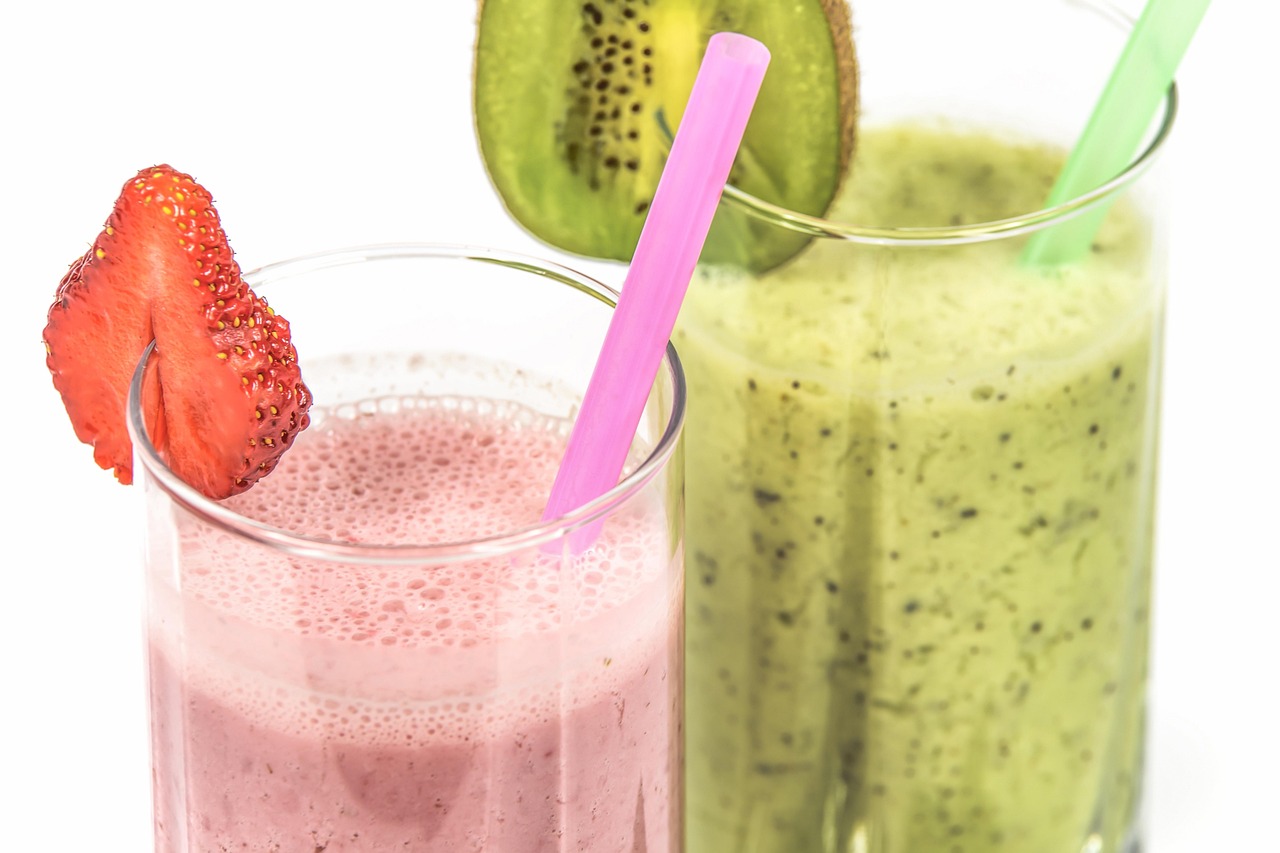Did you know that kiwis are not just delicious but also packed with nutrients that can give your metabolism a little nudge? In fact, these vibrant green fruits are known for their high vitamin C content and fiber, both of which can play a role in metabolic health. Whether you’re looking to kickstart your day or need a refreshing afternoon pick-me-up, a kiwi-inspired smoothie might just be the ticket. Let’s dive into five scrumptious recipes that can help rev up your metabolism.
Contents
Why Kiwi?
Before we get into the smoothies, let’s chat about why kiwi is such a great choice. Kiwis are high in fiber, which aids digestion and helps maintain a healthy gut. They also contain an enzyme called actinidain, which can help break down proteins and improve digestion. Additionally, the high vitamin C content supports the immune system and can even help reduce inflammation.
But let’s be real—kiwis are just plain tasty. Their sweet-tart flavor makes them a fantastic addition to smoothies, balancing out other ingredients and adding a pop of color. Now, let’s get blending!
1. Kiwi Green Power Smoothie
Ingredients:
- 1 ripe kiwi, peeled and chopped
- 1 cup spinach
- 1 banana
- 1 cup almond milk (or any milk of your choice)
- 1 tablespoon chia seeds
- A handful of ice
Instructions:
- Add all ingredients to a blender.
- Blend until smooth and creamy.
- Pour into a glass, and enjoy!
Nutritional Highlights:
This smoothie is a powerhouse of nutrients. Spinach is rich in iron, and bananas add potassium, making this a great post-workout option. The chia seeds not only boost fiber but also provide omega-3 fatty acids, which are essential for heart health.
Pros & Cons:
Pros: Quick to make and packed with vitamins.
Cons: If you’re not a fan of spinach, you might want to swap it for kale or another leafy green.
2. Tropical Kiwi Coconut Smoothie
Ingredients:
- 1 ripe kiwi, peeled and chopped
- 1/2 cup coconut water
- 1/2 cup pineapple chunks (fresh or frozen)
- 1 banana
- 1 tablespoon flaxseeds
Instructions:
- Combine all ingredients in your blender.
- Blend until smooth.
- Serve chilled.
Nutritional Highlights:
Coconut water keeps you hydrated, while pineapple adds bromelain, an enzyme that may aid digestion. This smoothie is perfect for a hot day or after a workout.
Pros & Cons:
Pros: Refreshing and hydrating.
Cons: Coconut water can be high in sugar, so if you’re watching your sugar intake, consider using unsweetened coconut milk instead.
3. Kiwi Berry Blast Smoothie
Ingredients:
- 1 ripe kiwi, peeled and chopped
- 1/2 cup strawberries (fresh or frozen)
- 1/2 cup blueberries
- 1 cup Greek yogurt
- 1 tablespoon honey (optional)
Instructions:
- Combine all ingredients in a blender.
- Blend until smooth and creamy.
- Taste and add honey if desired.
Nutritional Highlights:
Greek yogurt is high in protein, which can help keep you feeling full longer. The berries are loaded with antioxidants, making this smoothie a fantastic choice for overall health.
Pros & Cons:
Pros: Deliciously sweet and satisfying.
Cons: If you’re lactose intolerant, opt for a dairy-free yogurt alternative.
4. Kiwi Avocado Smoothie
Ingredients:
- 1 ripe kiwi, peeled and chopped
- 1/2 avocado
- 1 cup spinach
- 1 cup coconut milk
- 1 tablespoon honey or agave syrup
Instructions:
- Add all ingredients to the blender.
- Blend until smooth and creamy.
- Serve immediately for the best texture.
Nutritional Highlights:
Avocado adds healthy fats, which are essential for hormone production and can help keep your metabolism running smoothly. Together with kiwi, this smoothie is creamy and rich, yet nutrient-dense.
Pros & Cons:
Pros: Packed with healthy fats and fiber.
Cons: Higher in calories due to the avocado, so keep portion sizes in check if you’re watching your caloric intake.
5. Kiwi Citrus Boost Smoothie
Ingredients:
- 1 ripe kiwi, peeled and chopped
- 1 orange, peeled and segmented
- 1/2 lemon, juiced
- 1 cup water or coconut water
- A handful of mint leaves
Instructions:
- Combine all ingredients in the blender.
- Blend until smooth and refreshing.
- Serve over ice for an extra chill.
Nutritional Highlights:
This smoothie is a vitamin C powerhouse, perfect for boosting your immune system. The mint adds a refreshing touch, making it a great option for summer.
Pros & Cons:
Pros: Refreshing and hydrating with a nice zing.
Cons: If you’re sensitive to citrus, you may want to reduce the amount of orange or lemon.
FAQs
1. Can I substitute the kiwi for another fruit?
Absolutely! While kiwi has unique benefits, you can swap it for other fruits like mango or banana. Just keep in mind that the flavor and texture may change a bit.
2. How can I make my smoothies thicker?
To thicken your smoothies, consider adding frozen fruits, oats, or even a scoop of protein powder. Greek yogurt also works wonders for a creamier texture.
3. Are these smoothies good for weight loss?
These smoothies are nutrient-dense and can be part of a balanced diet. They’re low in calories but high in fiber, which can help you feel full. However, moderation is key!
4. How long can I store these smoothies?
Smoothies are best enjoyed fresh, but you can store them in the fridge for up to 24 hours. Just give them a good shake or stir before drinking, as ingredients may separate.
Conclusion
Incorporating kiwi into your smoothies not only enhances the flavor but also boosts your nutrient intake—perfect for supporting a healthy metabolism. These five recipes are just a starting point; feel free to experiment with different fruits, greens, and liquids to find what you love best.
Whether you’re looking for a quick breakfast or a nutritious snack, a kiwi-inspired smoothie can be a delightful addition to your routine. So grab your blender, get creative, and enjoy the delicious benefits of these metabolism-boosting drinks!
Disclaimer: This article is for educational purposes only and is not a substitute for professional medical advice. Always consult a qualified healthcare provider before making changes to your health routine.
References
- Nascimento, A. C. C., & de Almeida, J. R. G. (2021). Nutritional and Health Benefits of Kiwi Fruits: A Review. Food Science and Human Wellness. https://doi.org/10.1016/j.fshw.2021.03.001
- Mayo Clinic. (2022). Nutrition and healthy eating. Retrieved from https://www.mayoclinic.org/healthy-lifestyle/nutrition-and-healthy-eating
- National Institutes of Health. (2021). Vitamin C: Fact Sheet for Consumers. Retrieved from https://ods.od.nih.gov/factsheets/VitaminC-Consumer/
Get Your FREE Natural Health Guide!
Subscribe now and receive our exclusive ebook packed with natural health tips, practical wellness advice, and easy lifestyle changes, delivered straight to your inbox.





